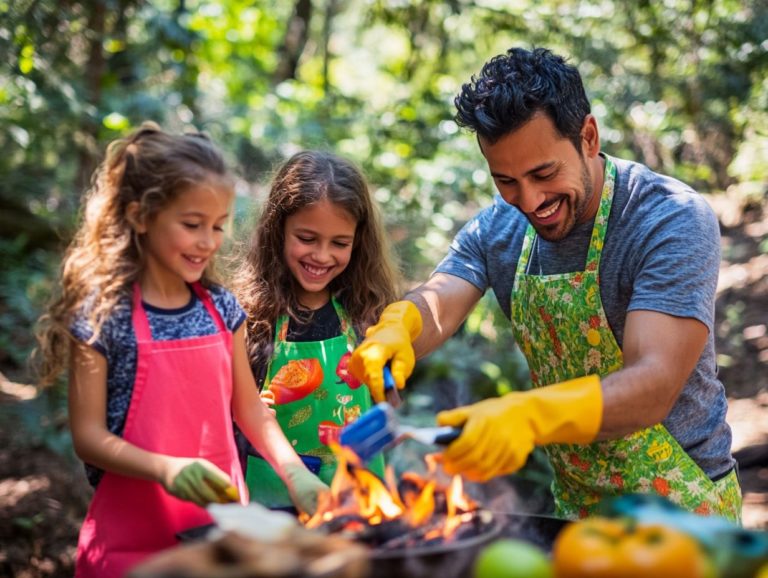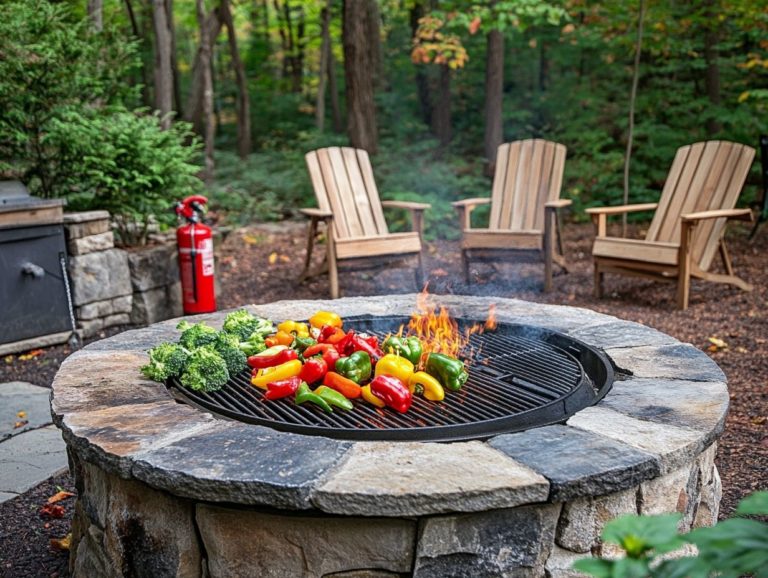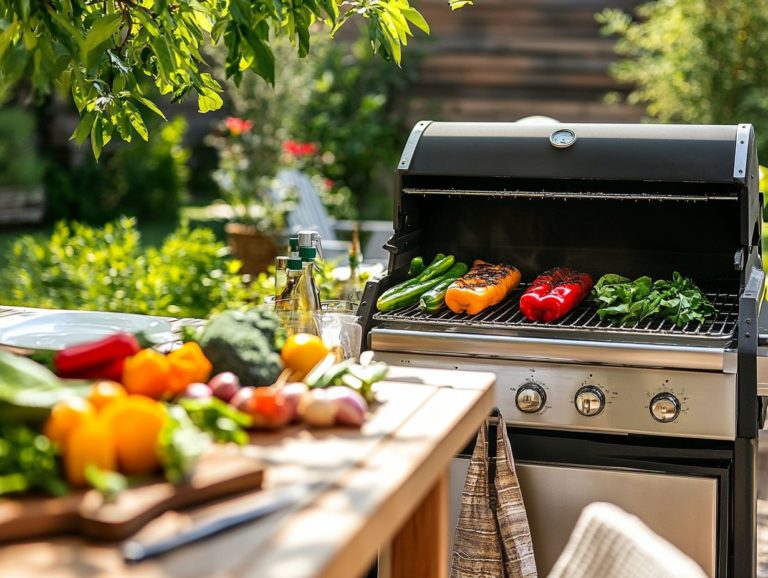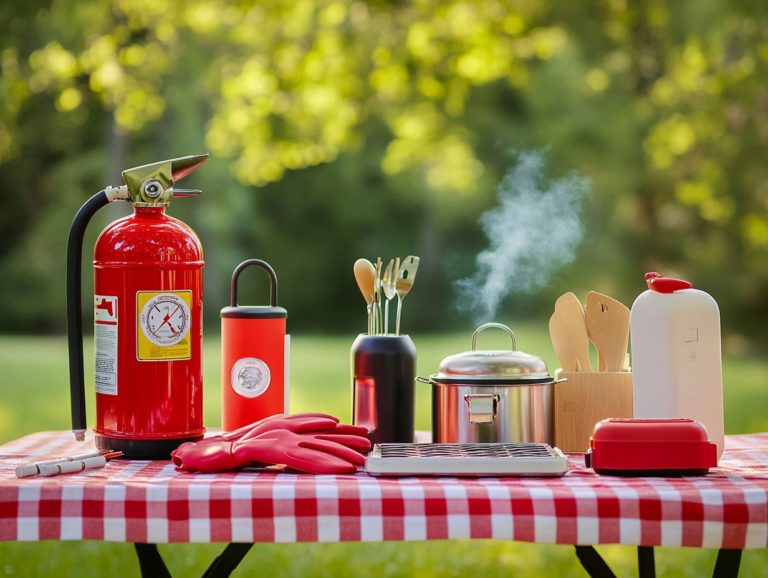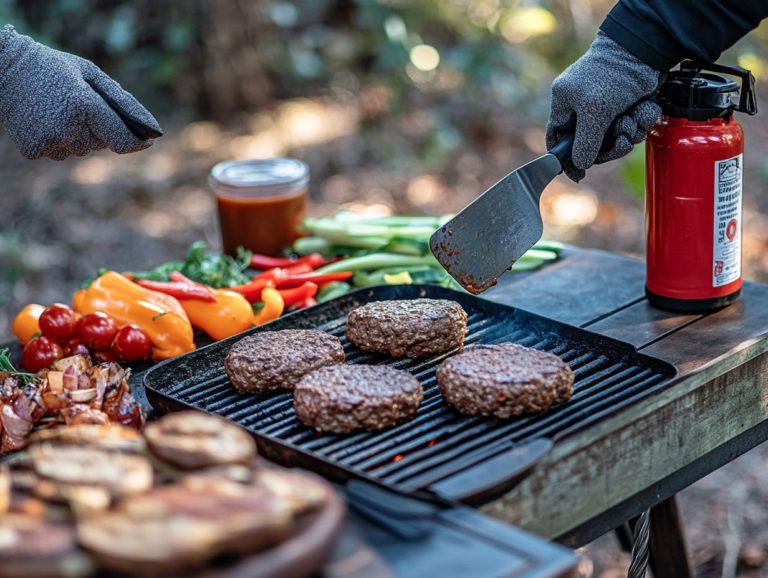Top Risks of Outdoor Cooking and How to Avoid Them
Outdoor cooking can be a truly delightful experience, yet it carries certain risks that deserve your attention.
From food safety concerns to the ever-present potential for fires, every aspect brings its own unique challenge. You ll need to take weather-related hazards into account, follow personal safety tips, and prioritize minimizing your environmental impact.
This article delves into these risks in detail and provides practical advice to guarantee you can enjoy your outdoor cooking adventures safely and responsibly.
Continue reading to uncover how to savor those delicious meals while ensuring both your safety and the well-being of the environment.
Contents
- Key Takeaways:
- Food Safety Concerns
- Fire Hazards and Prevention
- Weather-Related Risks
- Personal Safety Tips
- Avoiding Environmental Damage
- Frequently Asked Questions
- What are the top risks of outdoor cooking?
- What safety tips can help prevent foodborne illness and burns or fires while cooking outdoors?
- How can I stay safe from wildlife or insects while cooking outdoors?
- Can using a gas grill pose risks during outdoor cooking, especially regarding gas buildup?
- What steps should I take to ensure a safe and enjoyable outdoor cooking experience?
Key Takeaways:
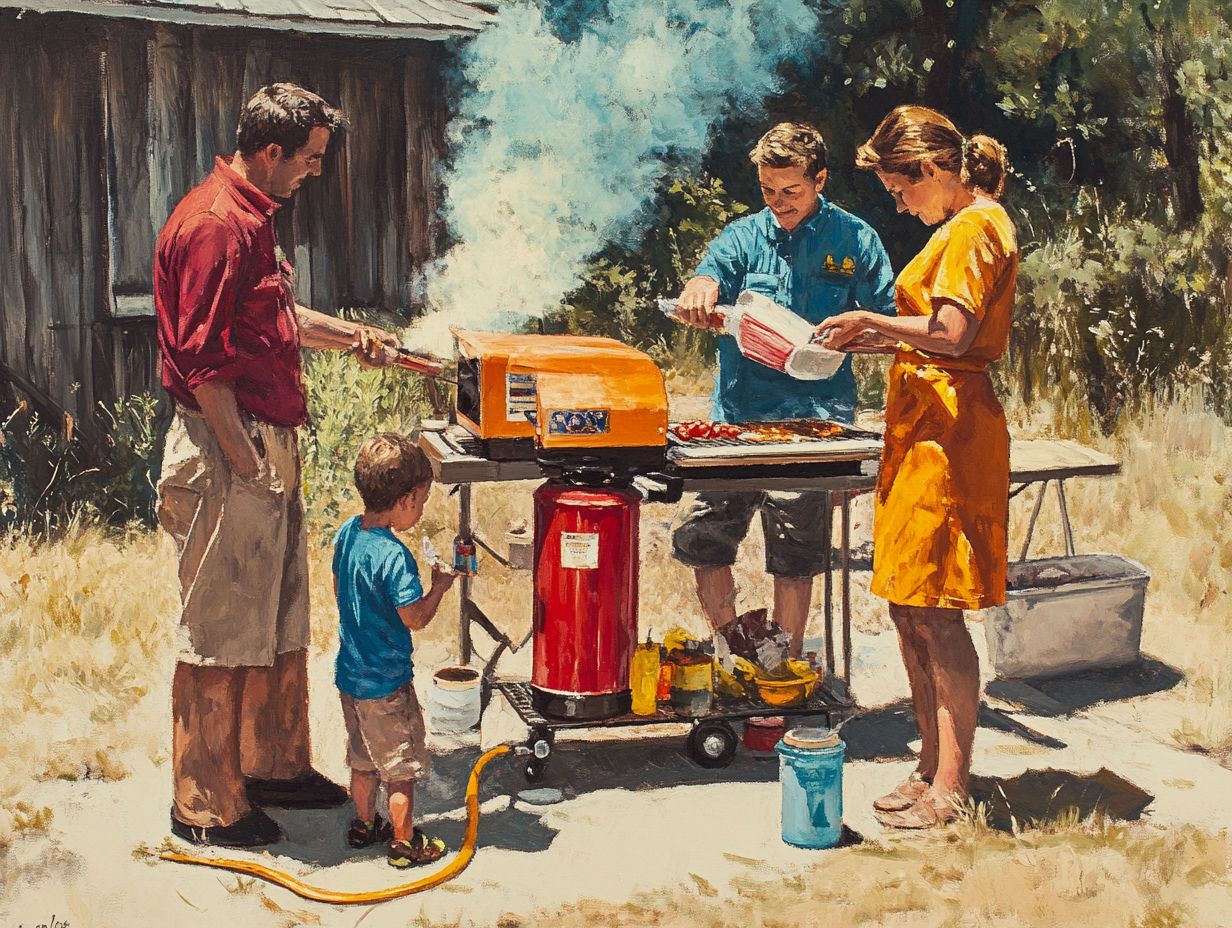
Why Outdoor Cooking Can Be Dangerous
Outdoor cooking comes with its fair share of safety risks that you should keep in mind. The combination of heat, combustible materials, and less-than-ideal construction can easily lead to serious fire hazards. To mitigate these risks, it’s important to follow best practices for outdoor cooking safety, especially when dealing with unexpected grease fires or the dangers of gas buildup from a faulty grill. Being aware of these risks is essential for anyone who loves cooking outdoors.
Accidents can happen, such as an outdoor kitchen collapsing due to insufficient weight capacity or improper building materials, endangering not just the structure but also the safety of children and bystanders.
Many overlook the importance of proper ventilation when setting up outdoor cooking stations. Poor ventilation can trap smoke and harmful gases, creating respiratory risks for those nearby. Additionally, flammable materials like dry leaves or improperly stored propane tanks can turn a minor incident into a major catastrophe in the blink of an eye.
Make sure your cooking area is free of hazards for a fun and safe cooking adventure!
By taking these precautions, you can significantly reduce the risks associated with outdoor cooking!
Food Safety Concerns
Food safety is essential when it comes to outdoor cooking. Improper handling can cause foodborne illnesses, posing serious health risks at your BBQ.
Safe practices keep your gatherings fun and stress-free.
Preventing Foodborne Illness
Preventing foodborne illness in your outdoor kitchen demands a commitment to safety measures that guarantee all food is cooked and stored with precision.
One effective strategy is to use separate utensils for raw and cooked foods (to avoid cross-contamination), which significantly reduces the risk of foodborne illnesses and safeguards the quality of your meal. Maintaining the correct cooking temperatures is equally important; ensuring that meats reach a safe internal temperature is essential for eliminating harmful bacteria. Keeping food covered protects it from insects and airborne pathogens, further enhancing your safety efforts.
By following these practices, you can markedly diminish the risk of foodborne illness, allowing you to fully savor your outdoor cooking adventures and debunk common outdoor cooking myths.
Fire Hazards and Prevention
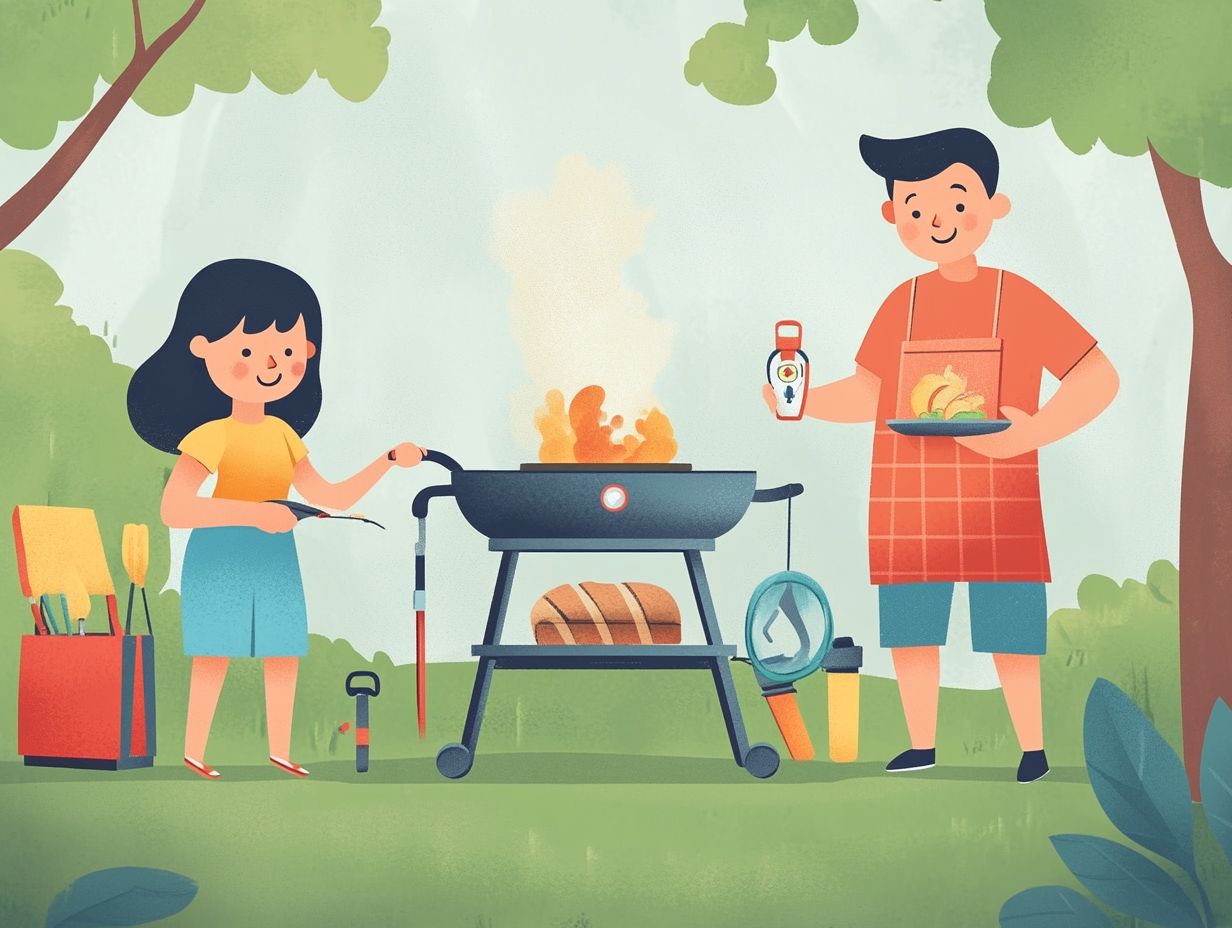
Fire hazards pose a serious concern for those who revel in outdoor grilling. When you overlook fire safety guidelines, you open the door to dangerous situations, such as grease fires. To minimize risks, it’s crucial to follow safety tips for open flame cooking. Prioritizing safety is essential to ensure an enjoyable and risk-free grilling experience.
Ready to fire up your grill? Follow these tips and enjoy a safe outdoor cooking experience today!
Proper Use and Maintenance of Cooking Equipment
Proper use and maintenance of your cooking equipment are crucial for preventing fire hazards and ensuring safe outdoor grilling experiences. By adopting best practices, you not only extend the life of your equipment but also guarantee flavorful meals without the worry of perilous flare-ups.
An essential aspect of this is conducting regular inspections. Keep an eye out for any signs of wear or damage, especially in hoses and burners. Setting up your grill in a well-ventilated area, away from flammable materials, can greatly reduce potential risks.
In terms of cleaning, using a sturdy grill brush and mild detergents to tackle grease buildup is vital. Committing to regular deep cleaning sessions will improve safety and elevate the quality of your cookouts. This makes every meal more enjoyable while maximizing the lifespan of your outdoor cooking appliances.
Weather-Related Risks
Weather-related risks can greatly affect outdoor cooking experiences. It is essential to implement safety measures that mitigate the potential dangers posed by the elements, including understanding the risks of cooking with charcoal.
Prioritizing safety will ensure your cooking experiences remain enjoyable and worry-free, no matter the forecast.
Preparing for and Responding to Severe Weather
Preparing for and responding to severe weather is essential for anyone engaged in outdoor cooking. This ensures both safety and the protection of your cooking equipment.
Start by reviewing how to get ready for cooking outdoors. First and foremost, securing your cooking equipment is non-negotiable. Properly storing your grills, utensils, and fuel sources is crucial to prevent them from being swept away or damaged by harsh conditions.
Consistently checking weather forecasts grants you timely warnings, allowing you to make informed decisions about your outdoor activities. A well-structured emergency plan is vital. This plan should outline your evacuation routes, communication methods, and safety protocols, ensuring you and your companions can act swiftly if severe weather unexpectedly strikes.
Personal Safety Tips
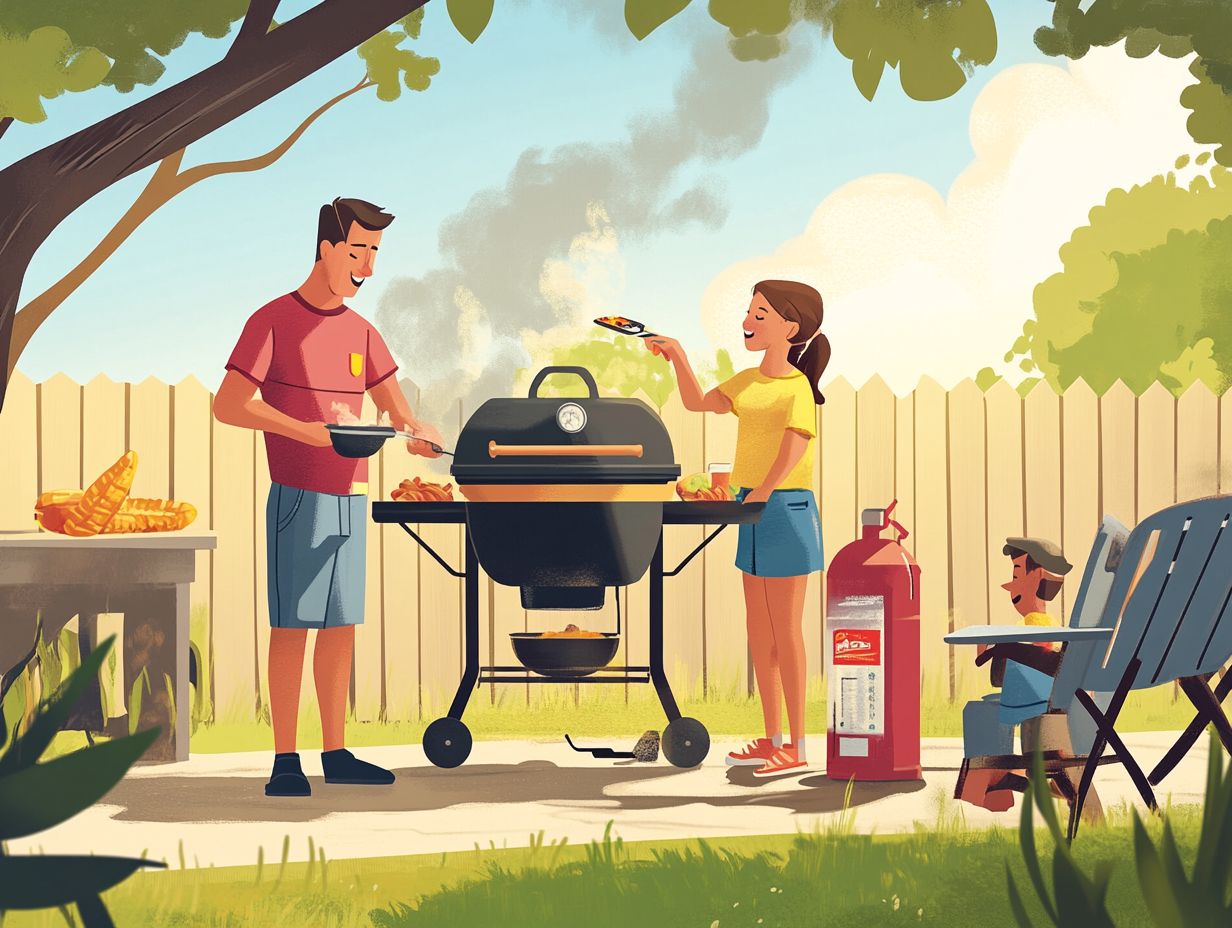
Personal safety tips are essential for anyone utilizing an outdoor kitchen. They play a crucial role in preventing injuries and fostering a secure cooking environment.
Protecting Yourself from Injury
Protecting yourself from injury while enjoying outdoor cooking demands a keen awareness of potential hazards. Following top tips for safe outdoor cooking with pets is equally important.
You might encounter common injuries like burns from open flames or hot surfaces and cuts from handling sharp utensils or food prep tools. To reduce these risks, equip yourself with the right protective gear, such as heat-resistant gloves and sturdy footwear. Utilizing cutting boards and mastering proper knife techniques can drastically lessen the likelihood of accidents.
Staying vigilant and adhering to safe cooking practices, like keeping flammable materials at a safe distance and maintaining a tidy workspace, will help you create a safer cooking environment.
Avoiding Environmental Damage
Avoiding environmental damage during outdoor cooking is crucial for responsible homeowners like yourself. You can enjoy your outdoor kitchens sustainably while conserving valuable resources.
Embracing eco-friendly practices not only enhances your culinary experience but also contributes to the well-being of the planet.
Conserving Resources and Minimizing Impact
Conserving resources and minimizing your impact during outdoor cooking requires thoughtful planning and practices that reflect your commitment to environmental responsibility.
Carefully choosing your cooking methods can significantly enhance sustainability. Consider solar cookers or efficient stovetops that consume less fuel. Opt for sustainable materials like cooking dishes that break down naturally or reusable utensils to drastically reduce waste.
Embrace a waste-free approach. This means using everything you can and not leaving trash behind. Incorporate strategies like composting food scraps and ensuring a thorough clean-up, leaving no residual impact behind.
Transform your outdoor cooking into an eco-friendly adventure! A little foresight in preparation can contribute to a healthier planet while you revel in the beauty of nature. Act now to protect the planet while enjoying it!
Frequently Asked Questions
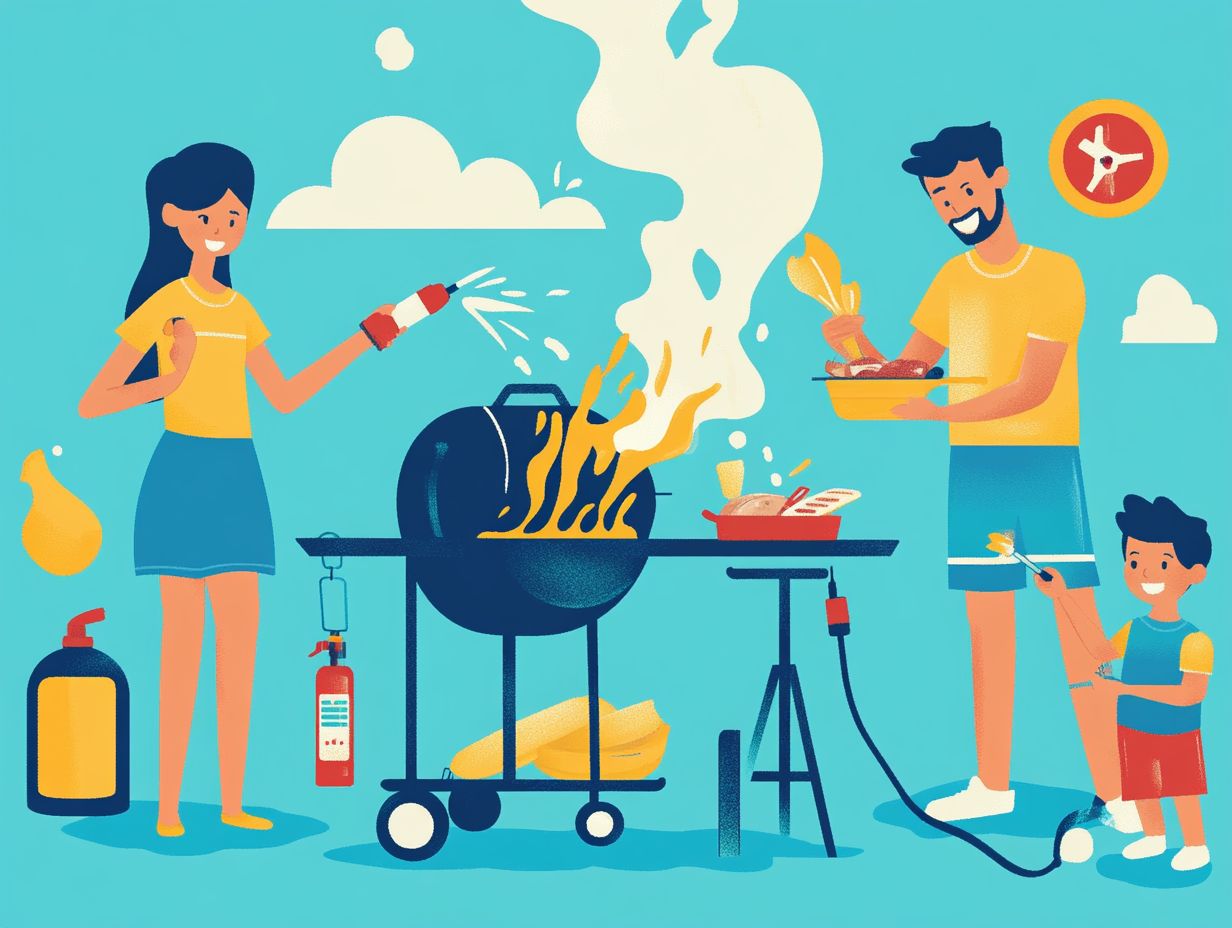
What are the top risks of outdoor cooking?
The top risks of outdoor cooking include foodborne illness from undercooked food, burns or fires from mishandling equipment, and danger from wildlife or insects. To avoid these issues, it’s essential to be aware of common outdoor cooking mistakes.
What safety tips can help prevent foodborne illness and burns or fires while cooking outdoors?
To avoid foodborne illness, always cook food thoroughly and use a meat thermometer to ensure it reaches the proper internal temperature. Prevent cross-contamination by using separate cutting boards and utensils for raw and cooked food.
To prevent burns or fires, keep a fire extinguisher nearby and be mindful of hot surfaces and open flames. Never leave cooking equipment unattended. Make sure to properly extinguish fires before leaving the area. Be aware of potential fire hazards, like grease fires and combustible materials.
How can I stay safe from wildlife or insects while cooking outdoors?
Seal food tightly in containers and clean up any food or debris after cooking. Keep food covered and use bug spray to prevent insect bites.
Can using a gas grill pose risks during outdoor cooking, especially regarding gas buildup?
Yes, using a gas grill can pose risks if not properly handled. Always check for gas leaks and keep the grill away from flammable materials. Follow the manufacturer’s instructions for safe use and maintenance of the grill.
What steps should I take to ensure a safe and enjoyable outdoor cooking experience?
Plan ahead and have all necessary equipment and supplies ready. Follow safety guidelines, handle and cook food properly, and be aware of your surroundings. For more information on how to stay safe, check out understanding common injuries in outdoor cooking. Most importantly, practice caution and common sense while cooking outdoors.


